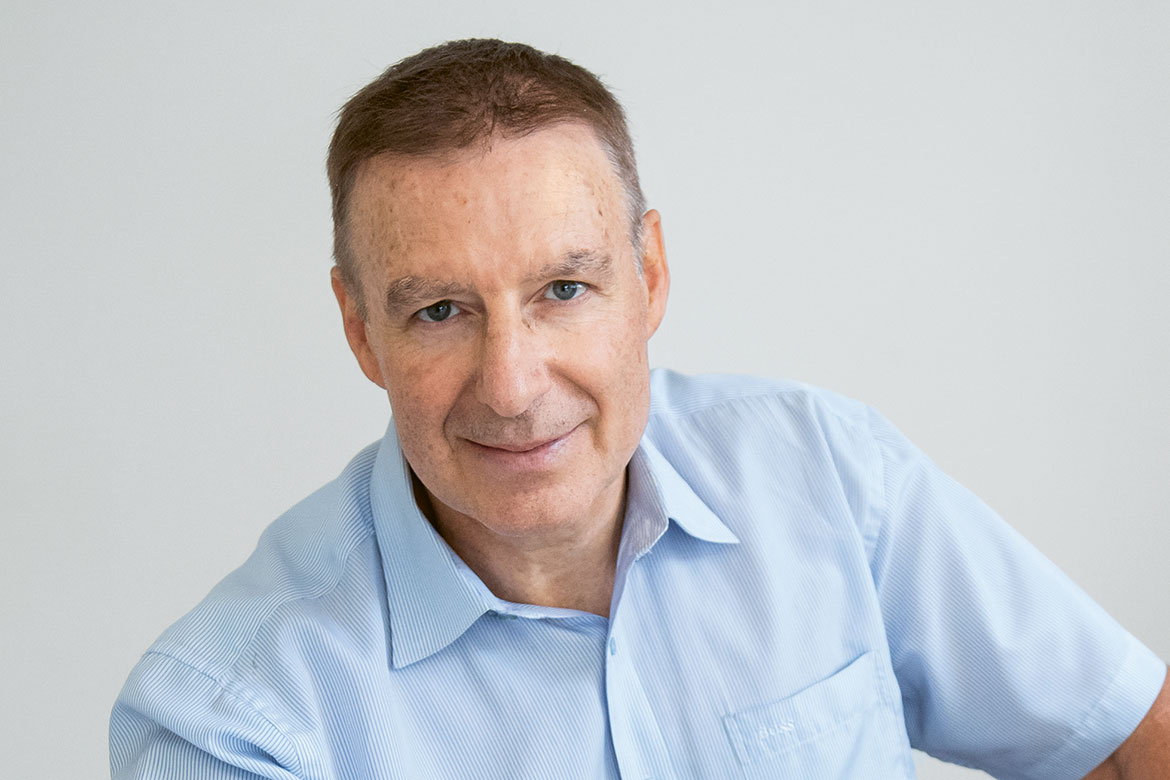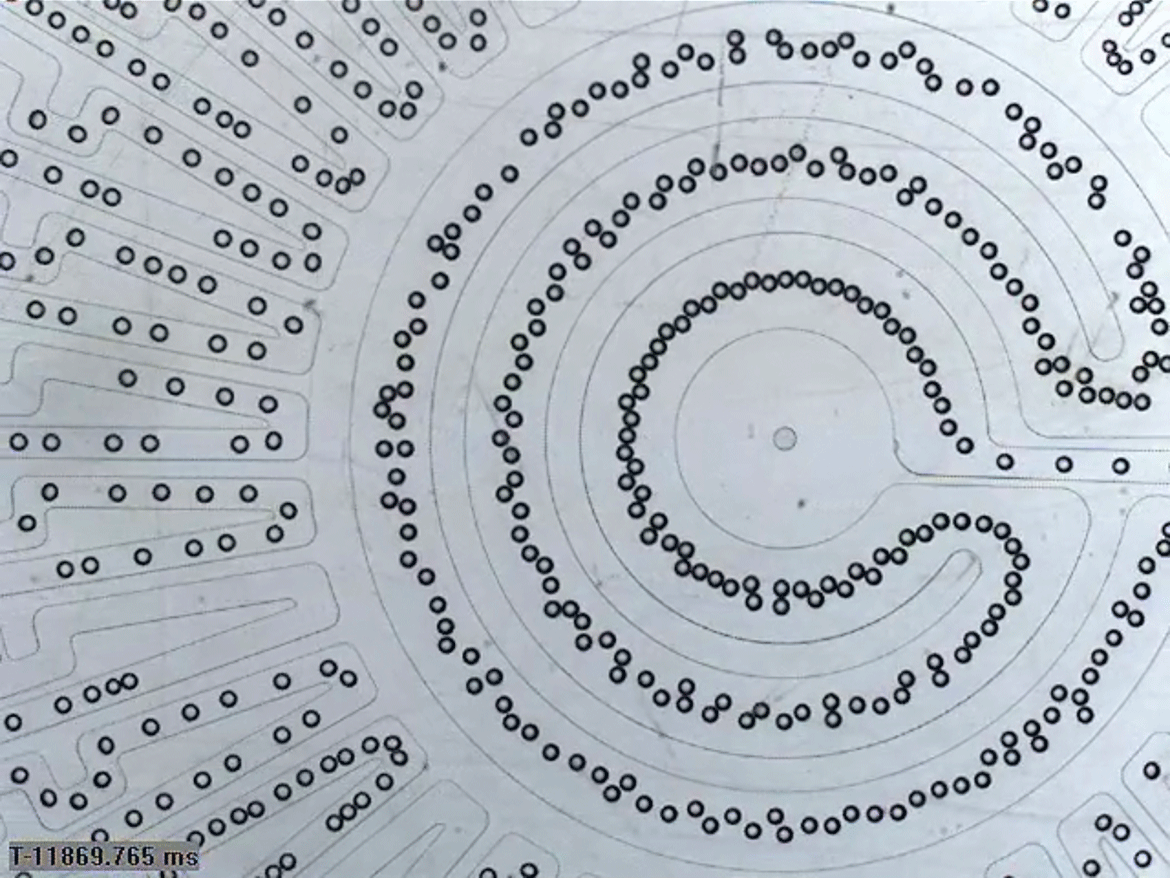The physicist who wants to predict everything
Didier Sornette uses physics to analyse financial markets, epidemics and the risk of industrial accidents. No subject seems to frighten this universal-minded researcher, who even shares his fitness theory.

The physicist at heart: Didier Sornette applies rational thought to everything, be it research, politics or his private life. | Picture: Valérie Chételat
Scientific posters adorn the walls of his small office, featuring the sun, a cell, a pregnancy, a diagram of an executive strategy, and a satellite photo of the Earth’s glaciers. This diversity is a good reflection of the curiosity of Didier Sornette, the director of the Chair of Entrepreneurial Risk at ETH Zurich. “Everything is knowable”, he says. “The central thread to my career is the quest for prediction”.
On the sofa are motorcycle gloves and a helmet. “I have five bikes, including 200-horsepower monsters”, he says. They can do 0-100 km/h in 2.6 seconds. Everyone remarks to me that this is paradoxical for a risk specialist... But I take it very seriously: my helmet and leather clothing are passive risk management. When on the motorcycle, you have to perform dynamic management, it’s not driving, it’s riding: monitoring the road surface, anticipating the trajectories of other vehicles”. His explanations follow one another at a steady pace – and quickly confirm the first impression: Didier Sornette is a physicist to the core, both in and out of the office. Even his private life is subjected to the scrutiny of his sharp, logical, and yet witty mind.
The planet China
He recounts his latest and perhaps biggest project: a new research institute he is setting up at Sustech University of Technology, Shenzhen, in the heart of China’s Silicon Valley. It will bring together all his interests, he says: the prediction of financial markets and earthquakes, the management of nuclear energy, the risks of major industrial accidents, the cybersecurity of the blockchain, the simulation of epidemics and, finally, sociophysics. It is the last of these that best summarises his approach: using concepts from physics and thermodynamics to model social phenomena, such as the contagion that infects traders or the viral sharing of videos on YouTube.
Why China? “It is a planet in itself that must manage all the major problems in a multiplied version: demography, energy, pollution... Our future depends on China: if it succeeds, we will succeed. Otherwise, we’ll fail”. Does he feel uncomfortable helping a government that is relentlessly monitoring its citizens and sending millions to re-education camps? “What’s happening in Xinjiang doesn’t match my values. But we must understand what China is: a succession of dynasties linked to the population by a social contract centred on stability. The government wants to avoid events that could generate discontent, and is in fact listening to citizens. That’s why it’s prioritised the protection of the air”.
He confides in always having with him a pair of chopsticks, which he says he finds much more practical, before moving on to another concept with a hint of the Orient: the ‘dragon king theory’. It describes rare and devastating statistical events caused by a snowball effect that his work suggests can sometimes be predicted. “Complex systems are usually chaotic, but sometimes go through predictability windows. These are very difficult to detect, because most of the signals that we can analyse contain only noise that is best ignored. Yet there are certain symmetries in the data that herald regime change and that can be observed”.
Sornette has therefore developed a method to identify a financial bubble when a value follows a particular curve, called the ‘log periodic power law’, and can predict its breaking point. Between 2009 and 2012, he published encrypted predictions for hundreds of stocks. This was an act of rare transparency in science that illustrates both his intellectual honesty and his confidence in his work. The bet was successful: once deciphered six months later, the forecasts proved to be correct in 85 percent of cases.
Sports lessons
At 62 years old, retirement is “a foreign concept” for him. In addition to supervising a 21-person team at ETH Zurich, he is also an associate professor in Austria, China and Japan, an advisor to banks, insurance companies and industry, the co-founder of four financial start-ups and his own stockbroker (where he combines his own research results and his money). “What motivated me from the beginning was understanding things: gathering the elements of knowledge and seeking coherence. From there, I yearned increasingly to make an impact: not only to publish yet another article, but also to advise decision-makers by taking a rational look at major social issues”.
How do you do all this with just 24 hours in a day? “I recharge my batteries through sport. Every morning, I do ten minutes of exercise on my balcony. In my underwear, in summer and in winter, and sometimes with my feet in the snow!” At 6 pm the same thing: “When I finally have time to work alone, the tank is empty. So I do high intensity interval training. The idea is to work hard for a few minutes to relax and reoxygenate the body. That keeps me going until 8 or 9 pm”. In winter, he hits the slopes on a skwal - “a sort of daredevil monoski”, and in summer he kitesurfs and wakeboards. On a weekly basis, he also takes his friends and students out for trips on the lake.
Despite having taught in Zurich for thirteen years, this Frenchman speaks no German. “But I do speak about ten other languages: maths, physics, finance, biology, geology... Each field has its own culture. That’s why I don’t feel the need to go on holiday: when I’m tired of one subject, I take on another”.




